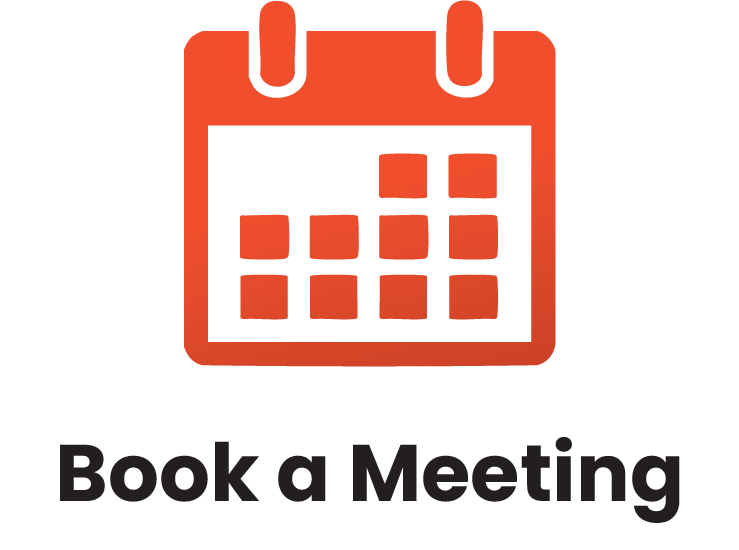Interactive training sessions led by experienced facilitators.
What is In-Person, Instructor-Led Training?
Our in-person training is delivered by a live facilitator who works directly with your team at your location. It’s our most popular format because it allows for real-time interaction, hands-on learning, and direct support.
Every session is tailored to your team’s specific goals, industry, and challenges—no generic, one-size-fits-all programs. Whether it’s a single session or a full training series, we design the experience to be relevant, practical, and fully aligned with your needs.
What is Live Webinar Training?
Live webinars are facilitator-led training sessions delivered online in real time. They’re ideal for teams working in different locations or with busy schedules.
This format offers shorter, more frequent sessions that are easy to coordinate—making it a convenient option for organizations with remote or distributed teams.
What is Virtual Classroom Training?
Virtual Classroom training is live, instructor-led training delivered online. It offers the same interactive experience as in-person sessions, with real-time discussions, group activities, and instructor feedback.
It’s a flexible option for organizations that want to reduce travel, save costs, or better fit training into busy schedules.
What is a Lunch & Learn Session?
Lunch & Learn sessions are short, facilitator-led training sessions delivered in person or online—typically during the lunch hour. They focus on specific topics or skills and offer a quick, engaging way to learn without a full-day commitment.
These sessions can be offered as one-time events or as part of a series, making them a great option for ongoing, bite-sized learning.
Online Learning
Enjoy our self-paced option and learn from anywhere!
$199.00 USD
Project Management Training: Understanding Project Management
Project management isn’t just for construction engineers and military logistics experts anymore. Today, in addition to regular job duties, people are often expected to take on extra assignments and to get that additional job done well, done under budget, and done on time.
This workshop is not intended to take participants from a supervisory or administrative position to that of a project manager. However, these three days will familiarize them with the most common terms and the most current thinking about projects.
In this workshop, you will walk participants through the nuts and bolts of project management, from setting priorities to controlling expenses and reporting on the results. They may still have to cope with the unexpected, but they’ll be better prepared.
LEARNING OBJECTIVES
Learning Objectives
This three-day workshop will help participants:
- Understand what is meant by a project.
- Recognize what steps must be taken to complete projects on time and on budget.
- Sell ideas and make presentations.
- Use simple techniques and tools for planning and tracking a project.
- Use methods for keeping the team focused and motivated.


COURSE OUTLINE
What is a Project?
To start, participants will learn ways in which projects differ from other kinds of work and what a project is and isn’t.
Project Management Basics
Next, participants will learn what is meant by project management and what projectmanagement involves.
Pre-Assignment Review
In this session, participants will prepare to answer the questions they will cover in their presentations at the end of the workshop. In addition, students will learn about eight categories to consider when preparing a project.
How Can Projects Help Me?
Next, students will learn how projects can benefit not only their company, but also their own careers and professional development.
A Project’s Life Cycle
Then, participants will learn about the four phases of a project’s life cycle. They will also explore what needs to happen during each phase in order to keep a project going, learn about project milestones, and look at why some projects fail.
Selling a Project
In this session, students will learn how to present their projects in order to obtain the support necessary for its success. They will also learn how to evaluate and prioritize their ideas using priority matrices.
Preparing Your Project
Then, students will learn how to promote their project to the management team. They will also learn the best ways to approach management and obtain support for their project.
The Role of a Project Manager
In this session, participants will consider what it means to be a project manager. They will also have the opportunity to fill out a sample proposal form.
Project Goals
Next, participants will learn how to write clear project goals using the SPIRIT model. They will also learn what criteria need to be considered for project-specific goals.
Laying Out the Project
In this session, students will learn how to plan their project, including how to write the Statement of Work, complete a Project Planning form, and write concise and clear reports.
Project Risks
Participants will learn about the different kinds of risks their projects face and how they can be reduced. They will also learn about what constraints are and how they differ from risks.
Contingency Planning
Then, students will look at contingency planning. They will learn the components of a contingency plan and consider what contingency plans their personal projects will require.
What Really Needs to be Done?
In this session, students will learn some of the most effective ways to plan and schedule their projects. They will look at laying out tasks, preparing basic schedules, and how to schedule activities effectively.
The Work Breakdown Structure
Next, participants will look at how to create a Work Breakdown Structure and how to break their tasks into manageable activities to keep their project’s momentum going.
Planning Tools
In this session, students will learn about several basic planning tools, including milestone charts, PERT tools, Gantt charts, network diagrams, and flow charts.
Budgets
Next, students will look at the importance of budgeting and some budgeting methods for their projects. They will learn about what they have to budget for and how to build their own budget.
Teamwork
Then students will look at teamwork, one of the essential components of a project. They will examine how to put together an effective team and how to keep everyone working together and motivated.
Developing Teams
In this session, participants will look at four issues that are central to a team’s success. Then, they will learn how teams can work together during a project and what the project manager can do in order to help them succeed together.
Aspirinia
Next, students will participate in a case study about Aspirinia, an exercise designed to apply what they are learning about projects and team building in a simulated, futuristic scenario.
Communication Tips
In this session, participants will look at how to keep communication flowing between their team, their manager, and their customers or agents. They will also learn about the importance of reports in keeping communication open.
Closing Out a Project
Then, students will look at how to plan for the end of a project. They will learn how to close a project smoothly and make sure all loose ends are wrapped up.
Team Meetings
Next, participants will learn how to coordinate group meetings. They will look at what team meetings need to cover and the ingredients for effective meeting management.
Presentation Primer
In this session, participants are given time to consider their presentation strategies and consider how to apply what they’ve learned in the workshop to their project presentations.
Project Presentations
Students will now have the opportunity to prepare and present their projects. Participants are encouraged to provide feedback to one another, giving students some solid feedback.


















